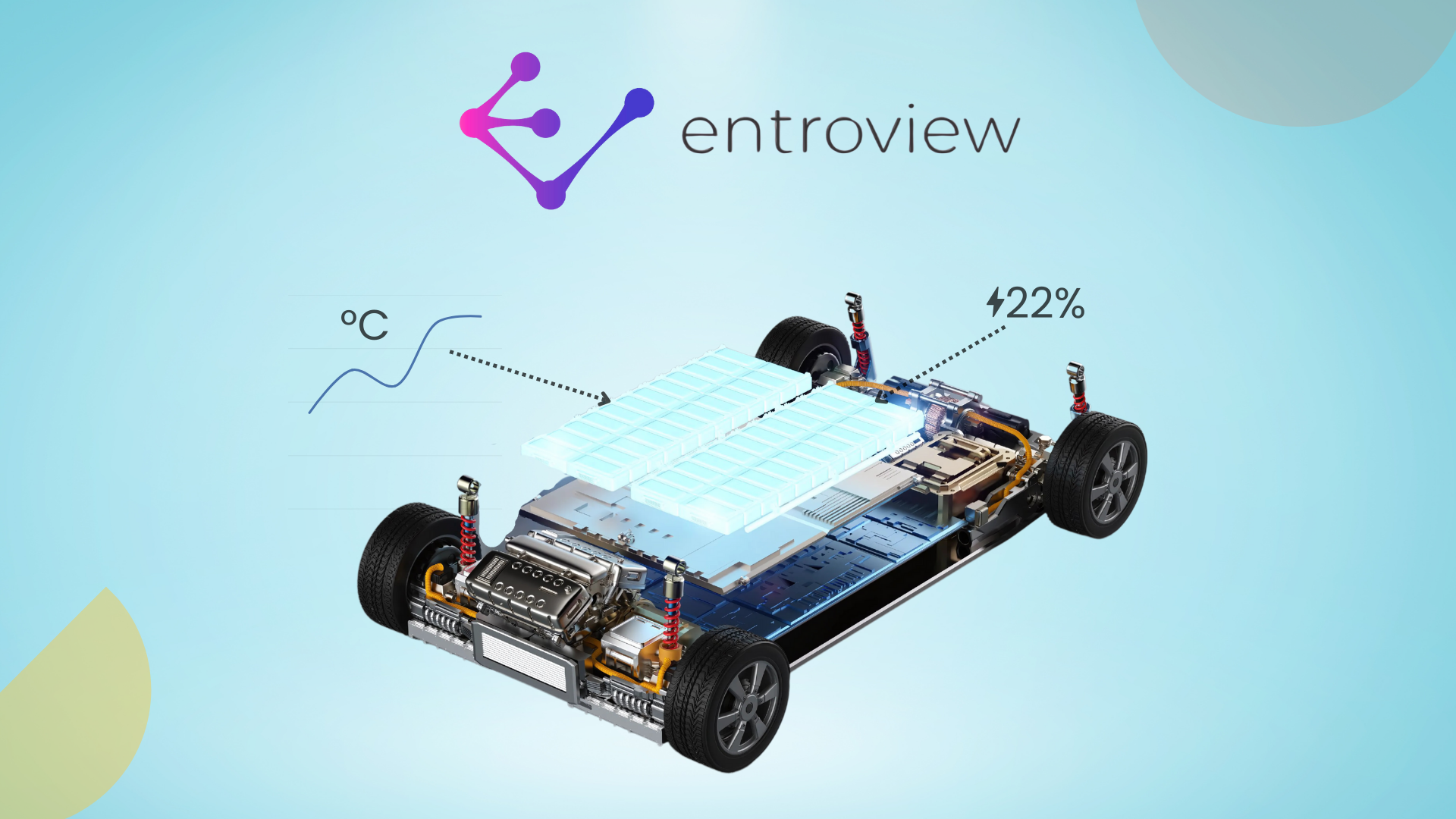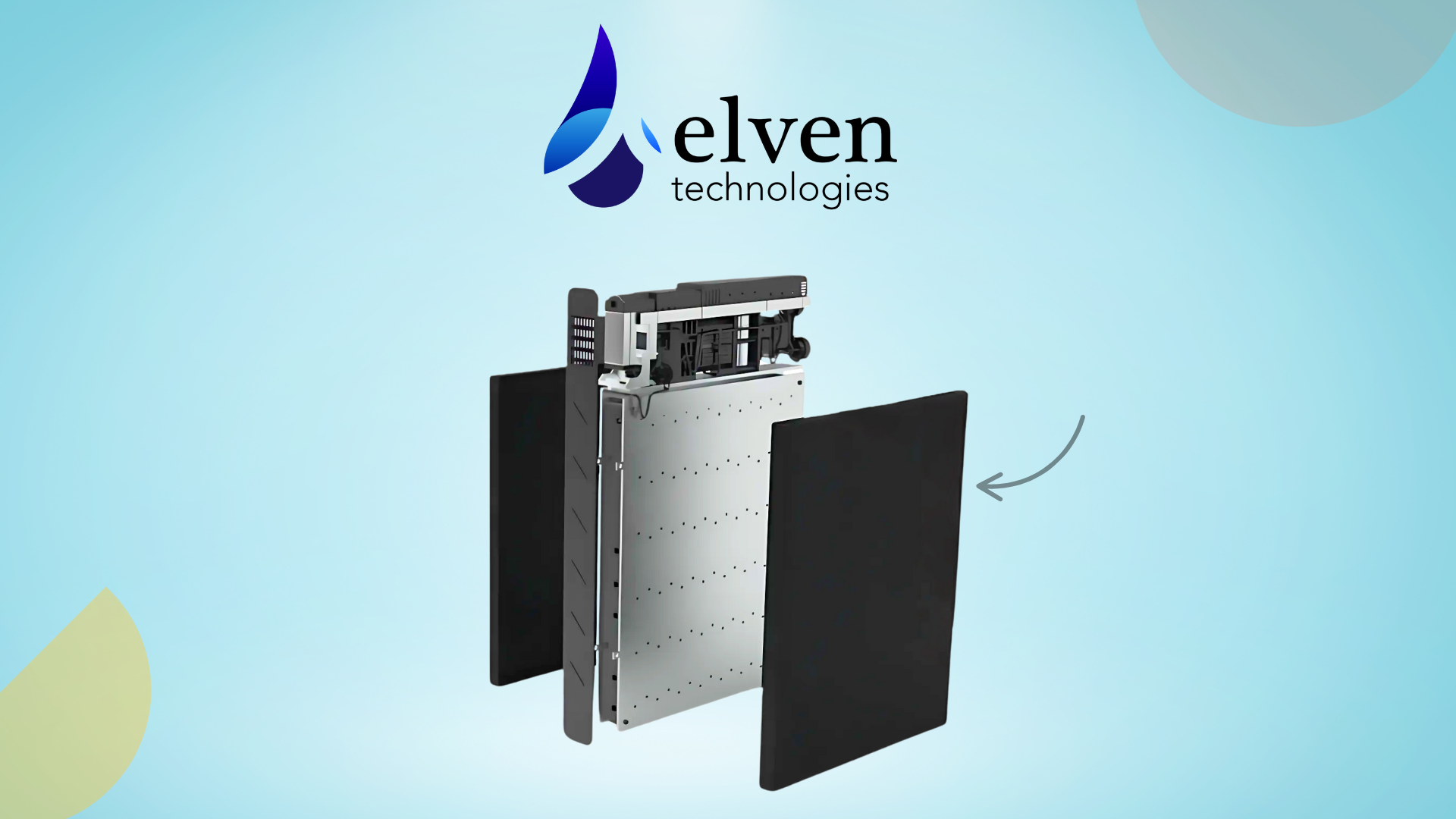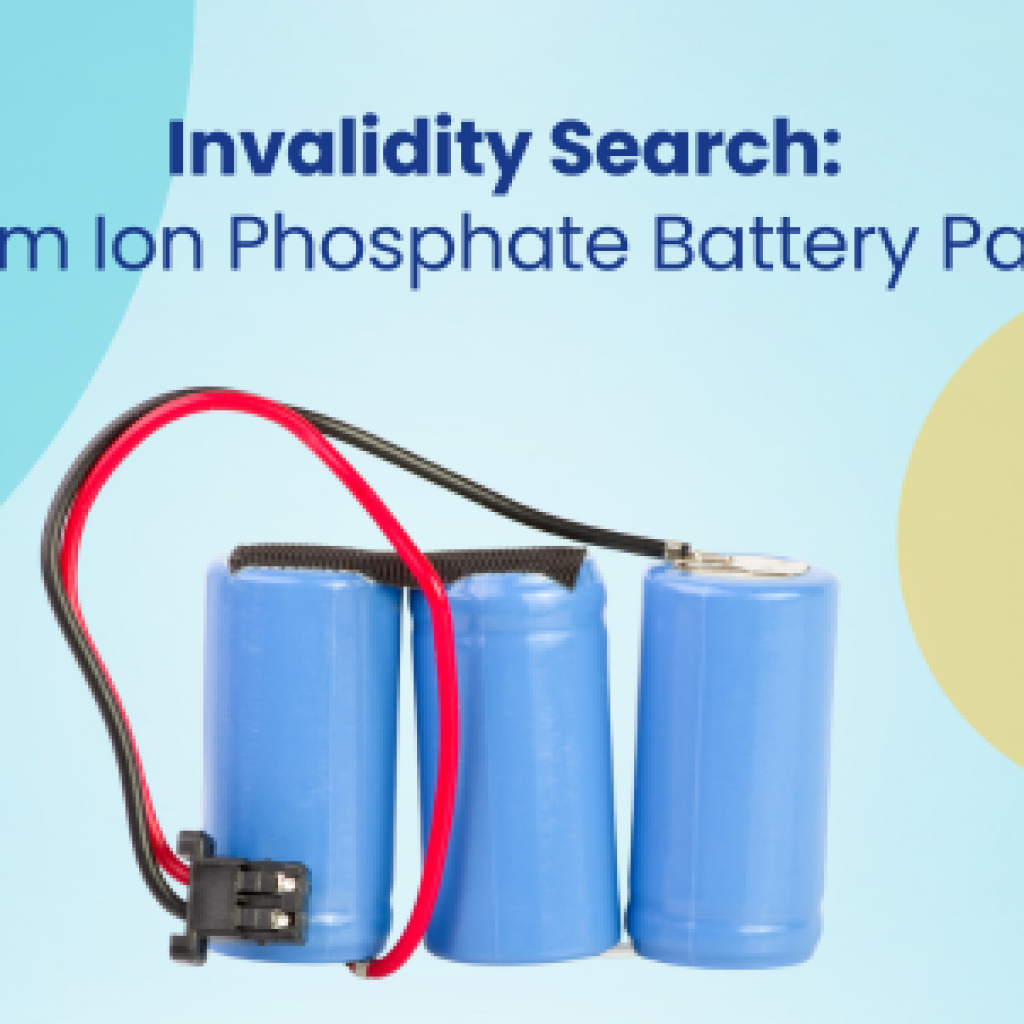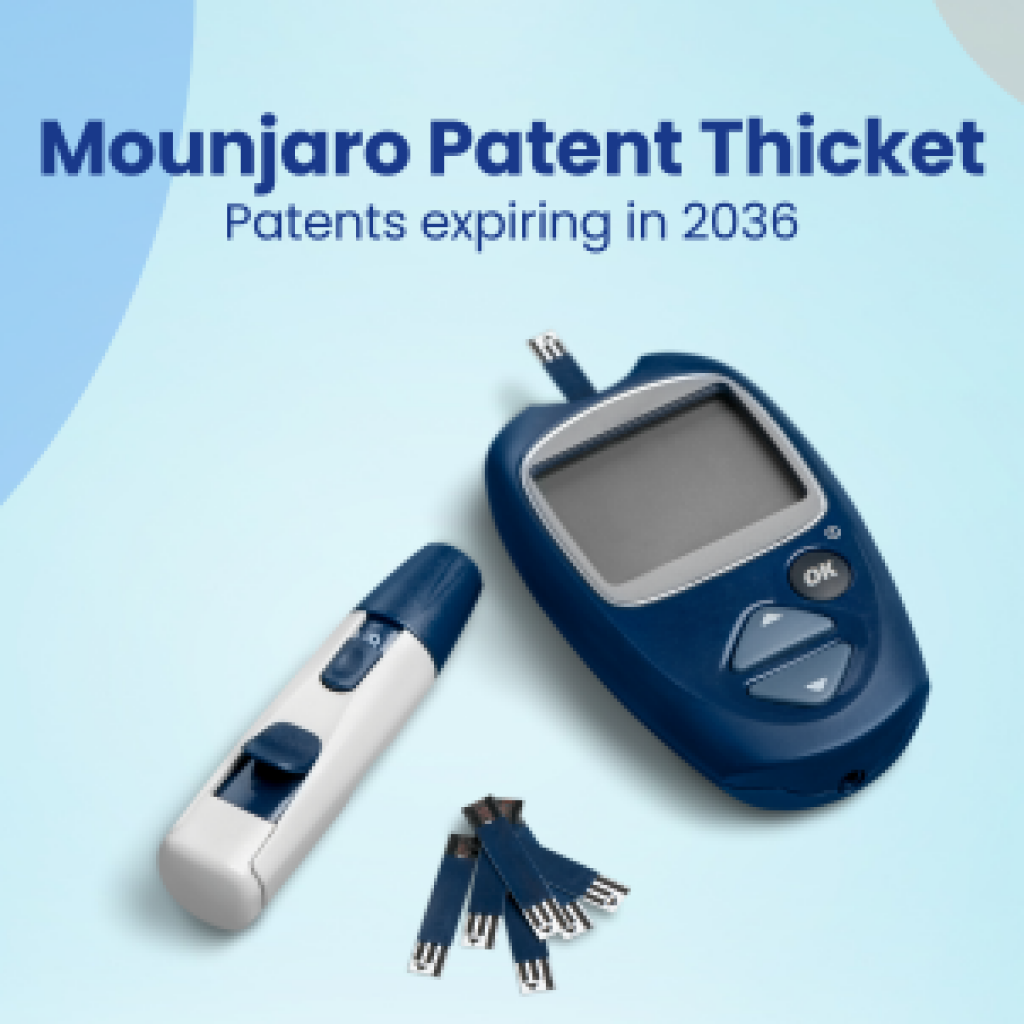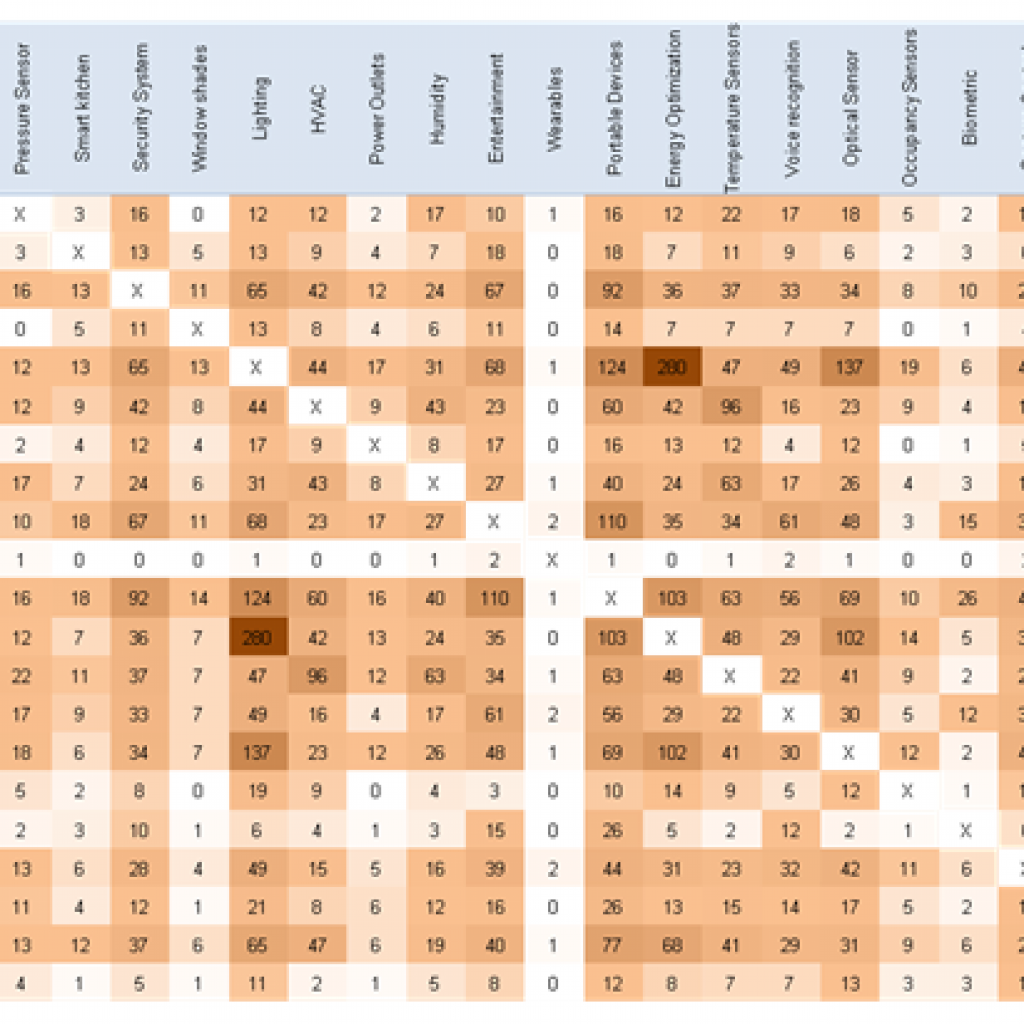EVs have grown rapidly in recent years, making the accurate diagnosis of EV battery health more crucial than ever. The lack of real-time, field-applicable diagnostic tools contributes to issues like battery fires, inaccurate charge readings, and premature degradation.
While looking for emerging solutions to these critical problems, we came across a French startup – Entroview. Entroview addresses this issue by offering a diagnostic tool that combines hardware and software to measure battery health in real-time. It uses entropy variations to provide instant insights into a battery’s State of Health (SOH) and State of Charge (SOC). This allows for precise monitoring and prediction of battery conditions. The technology promises to enhance the safety of EV batteries and extend their lifespan by improving diagnostic and repair capabilities.
We spoke to Gaetan Depaepe, the CEO of Entroview, to understand how their process works. This article contains highlights from our full conversation.
This interview is part of our exclusive Scouted By GreyB series. Here, we talk to the founder of innovative startups to understand how their solutions address critical industry challenges and help ensure compliance with industry and government regulations. (Know more about startups scouted by GreyB!)
“What we bring to the market is lab-grade diagnostics—something that’s been used in labs for 40 years—but we make it possible to use in the field, in real time.”
– Gaetan Depaepe

Gaetan Depaepe is the CEO of Entroview, which he co-founded in 2021. Gaetan studied at ESSCA, a business school known for its focus on management and entrepreneurship. Before founding Entroview, he served as the Founder and CFO at Likewatt, a company focused on energy solutions. He also co-founded Runview, a fintech startup, where he scaled the business to €7 million ARR and managed a team of 60 people.
Overview of Entroview’s Tech: The Key to Safer, Longer-Lasting Electric Vehicle Batteries
Entroview transforms how we diagnose and maintain electric vehicle (EV) batteries. They’ve created innovative technology based on entropy that offers clear insights into battery health and performance. This technology speeds up defect detection and helps optimize battery reuse or recycling, ultimately extending lifespan. Trusted by the automotive and recycling industries, Entroview’s solutions tackle key challenges related to battery aging, safety, and sustainability.
Watch our whole conversation here.
Here are some highlights from the interview.
What got you started on building Entroview?
Gaetan: Well, we saw a real gap in the market. Even though the electric vehicle sector has been growing rapidly, there weren’t any reliable tools to properly diagnose EV batteries in real-time. Many existing methods are outdated, relying on decades of technology. My partner, Sohae Balutmani, and I thought it was time to bring lab-grade diagnostics into the field. We’ve been working on this for years, building on Sohae’s PhD research, and we’re thrilled to finally launch something that can truly change the game for the industry.
Can you explain how your entropy-based diagnostic works in simple terms?
Gaetan: Sure! At the heart of our technology is something called entropy-based analysis. In basic terms, entropy helps us understand the “disorder” or internal changes happening inside a battery while charging or discharging. This lets us track how healthy the battery is. What’s exciting is that we can do all of this in real time, using only the existing sensors in EVs. There’s no need to open the battery or take it into a lab.
Why entropy, though? What made you choose this method?
Gaetan: Entropy gives us a much deeper look into what’s happening inside a battery—it’s rooted in physics. Most battery monitoring systems provide surface-level numbers like state of charge, but they don’t explain why a battery degrades. With entropy, we can identify if there’s lithium plating, SEI layer growth, or other degradation problems. That insight is crucial to make batteries last longer and keep them safe.
Discover a unique material that completely contains EV battery fires
Batteries are all over the place in terms of quality, variation, or material used. How does your system stay accurate with all those differences?
Gaetan: That’s a great point. Every battery cell is a little different, and we consider that. We create a kind of “fingerprint” for each cell to track its behavior over time. Then, using a mix of physics and machine learning, we compare that fingerprint to what’s normal and flag anything unusual. It helps us stay accurate, even when every battery has its quirks.
You’ve mentioned that your system is super accurate. What’s the difference compared to what’s out there now?
Gaetan: Most systems can tell you, “Your battery is at 90% health.” But that number doesn’t mean much if you don’t know how it got there or what kind of degradation is happening. Our system goes deeper. We not only tell you that you’ve lost 10% of capacity, but also why. Is it something harmless? Or something dangerous that could shorten battery life? That’s where our accuracy shines—we’re mostly talking less than 1% error.
What were some of the most complex parts of getting this technology ready?
Gaetan: It was tough to take this tech from the lab and make it work out in the real world. It’s one thing to get accurate data in a controlled lab, but a whole other challenge to do it in a moving car, on the road, in all kinds of conditions. Also, getting people in the industry to trust a new approach wasn’t easy. But we pushed through, and now we have a working product we’re proud of.
Where are you focusing next? What’s the game plan for growth?
Gaetan: We’re currently focused on the aftersales market, so consider car repairs and diagnostics. As more EVs age, the need to repair or assess battery health will only grow. We’re also working with some OEMs to embed our tech directly into their battery management systems. Our long-term goal is to make batteries last five years longer on average. We think that’s doable with better diagnostics.
What long-term impact do you think Entroview can have on the EV world?
Gaetan: Big picture? We see Entroview becoming a standard part of how EVs are maintained. Better diagnostics mean batteries last longer, fewer get thrown away early, and the system becomes more sustainable and cost-effective. It’s better for the car owners, better for manufacturers, and better for the planet. That’s the future we’re working toward.
Meet our Interviewer – Shabaz Khan, Marketing Manager at GreyB
Shabaz Khan, Marketing Manager
Want to find other scalable startups innovating in EV battery safety and diagnosis? Fill out the form below to reach out to our experts.
Get in touch
Please share your query below

